Pathology is the study and diagnosis of disease
through examination of organs, tissues, bodily fluids, and whole bodies
(autopsies). The term also encompasses the related scientific study of
disease processes, called General pathology. Medical pathology is
divided in two main branches, Anatomical pathology and Clinical
pathology. Veterinary pathology is concerned with animal disease whereas
Phytopathology is the study of plant diseases.
Further Reading
Scientists use artificial intelligence to create new ‘ImmunoMap’
Johns Hopkins
scientists have used a form of artificial intelligence to create a map
that compares types of cellular receptors, the chemical "antennas" on
the surface of immune system T-cells.
Targeted fluorescence successfully identifies pulmonary metastases in osteosarcoma patient
In a
proof-of-principle case report, researchers announce that targeted
fluorescence successfully identified pulmonary metastases in a patient
with osteosarcoma, making it easier for surgeons to locate the tumors
for resection.
Adrenomedullin could serve as biomarker, therapeutic target in disorders caused by leaky blood vessels
Disorders caused by a
leaky vasculature are more common than most people think. Despite ICU
treatment, one third of the 27 million patients globally that suffer
from sepsis, and up to 20% of the more than 5 million US patients with
congestive heart failure die every year from their condition.
Newly identified germline variations increase risk of relapse or second cancers in leukemia patients
Newly identified
germline variations in a key tumor suppressor gene predispose
individuals to develop leukemia as children and leave them with a 1-in-4
chance of developing a second cancer later. St. Jude Children's
Research Hospital scientists led the study, which appears today in the
Journal of Clinical Oncology.
Study provides insight into how early-stage breast cancer progresses to invasive ductal carcinoma
A new genetic-based
model may explain how a common form of early-stage breast cancer known
as ductal carcinoma in situ progresses to a more invasive form of cancer
say researchers at The University of Texas MD Anderson Cancer Center.
TriNetX reveals Natural Language Processing to Better Identify Patients for Clinical Trials
TriNetX, the global
health research network for healthcare organizations, biopharmaceutical
companies, and Contract Research Organizations (CROs), today announced
the general availability of its Natural Language Processing (NLP)
service.
Japanese researchers propose new diagnostic criteria and treatment guidelines for thyroid storm
With a mortality rate
estimated at 10%, the life-threatening condition known as thyroid storm
(TS) demands rapid diagnosis and treatment and can benefit from new
evidence-based guidelines for TS developed by researchers in Japan.
Blueberry extract can enhance effectiveness of cervical cancer treatment
According to the
Centers for Disease Control and Prevention, approximately 12,000 women
in the United States are diagnosed with cervical cancer each year.
Selenium protects specialized neurons from cell death during postnatal development
Exactly 200 years
ago, the Swedish scientist Jöns Jacob Berzelius discovered the trace
element selenium, which he named after the goddess of the moon, Selene.
Leica Biosystems agrees with the UK Office of Life Sciences to advance AI in pathology
A transformative
sector deal was announced between companies of the UK life sciences
sector and the UK government on Wednesday, December 6th, 2017. This
agreement draws substantial investment into the sector including the
development of a trail-blazing digital pathology program leveraging
Artificial Intelligence.
Findings provide better understanding of thyroid hormones' role in mammalian seasonal changes
Researchers now have a
better understanding of the role that thyroid hormones, the tissues
that produce them, and the biochemical pathways on which they act have
in driving seasonal reproduction in some mammals, and how this new
information may help explain seasonal changes in metabolism and mood
that affect humans.
Ludwig study elucidates mechanism behind metabolic vulnerability of some breast tumors
Scientists have known
since the 1980s that many cancer cells are relatively sensitive to the
deprivation of an essential amino acid known as methionine. It has,
however, long been unclear what causes such marked dependency on
methionine.
New findings may lead to sensitive, non-invasive test for Alzheimer's disease
New research has
drawn a link between changes in the brain's anatomy and biomarkers that
are known to appear at the earliest stages of Alzheimer's disease (AD),
findings that could one day provide a sensitive but non-invasive test
for AD before cognitive symptoms appear.
Study links mild obsessive-compulsive symptoms to alterations of cerebral anatomy in healthy children
A new study carried
out by the Bellvitge Biomedical Research Institute and the Institute of
Global Health of Barcelona, a centre supported by "la Caixa" Foundation,
associates for the first time mild obsessive-compulsive symptoms, which
are present in a much higher percentage of cases than those that
require specialized medical and psychological attention, to
characteristics and specific alterations of the cerebral anatomy.
Study suggests new treatment option for most lethal form of breast cancer
The most lethal form
of breast cancer could have a new treatment option, according to new
research out of the Case Comprehensive Cancer Center at Case Western
Reserve University School of Medicine.
‘Sushi-like’ nanodiscs provide structural snapshots of misfolding proteins
When proteins
misfold, accumulate and clump around insulin-producing cells in the
pancreas, they kill cells. Now, researchers, including University of
Michigan biophysicists, have obtained a structural snapshot of these
proteins when they are most toxic, detailing them down to the atomic
level.
Scientists use AI-enhanced microscope system to quickly, accurately identify bacteria
Microscopes enhanced
with artificial intelligence could help clinical microbiologists
diagnose potentially deadly blood infections and improve patients' odds
of survival, according to microbiologists at Beth Israel Deaconess
Medical Center
Researchers uncover THOR gene involved in cancer development
It turns out Thor, the Norse god of thunder and the Marvel superhero, has special powers when it comes to cancer too.
Study tests accuracy of laboratory-developed cancer tests and FDA-approved companion diagnostics
Cancer molecular
testing can drive clinical decision making and help a clinician
determine if a patient is a good candidate for a targeted therapeutic
drug.
Researchers win NIH grants for Alzheimer's research on Amish resilience and rapid onset
Researchers from Case
Western Reserve University School of Medicine have received two grant
awards, in partnership with investigators from other institutions, from
the National Institutes of Health to conduct major studies on
Alzheimer's disease, the most common form of memory loss and other forms
of dementia in older persons.
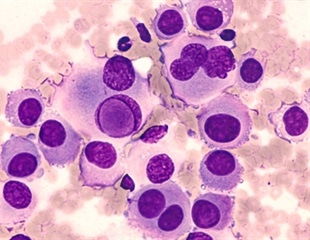
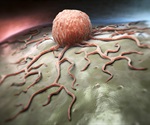




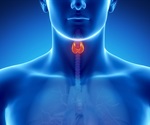
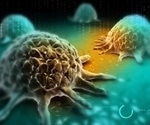
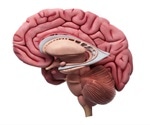
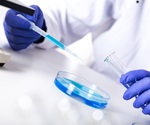

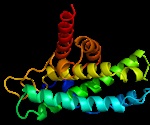


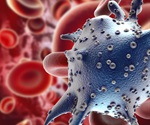


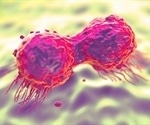
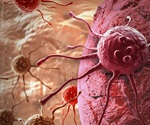
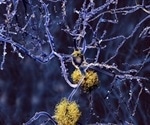




No comments:
Post a Comment